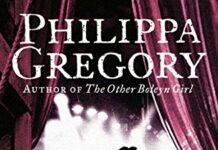
Ebook Info
- Published: 2005
- Number of pages: 416 pages
- Format: Epub
- File Size: 0.38 MB
- Authors: Philippa Gregory
Description
Daughter of Queen Isabella and King Ferdinand of Spain, Katherine has been fated her whole life to marry Prince Arthur of England. When they meet and are married, the match becomes as passionate as it is politically expedient. The young lovers revel in each other’s company and plan the England they will make together. But tragically, aged only fifteen, Arthur falls ill and extracts from his sixteen-year-old bride a deathbed promise to marry his brother, Henry; become Queen; and fulfill their dreams and her destiny.
Widowed and alone in the avaricious world of the Tudor court, Katherine has to sidestep her father-in-law’s desire for her and convince him, and an incredulous Europe, that her marriage to Arthur was never consummated, that there is no obstacle to marriage with Henry. For seven years, she endures the treachery of spies, the humiliation of poverty, and intense loneliness and despair while she waits for the inevitable moment when she will step into the role she has prepared for all her life. Then, like her warrior mother, Katherine must take to the battlefield and save England when its old enemies the Scots come over the border and there is no one to stand against them but the new Queen.
User’s Reviews
“In her addictive new novel, [Gregory] turns her eye to Katherine of Aragon, a princess who became Queen of England — all by dint of a well-kept secret.” — Marie Claire “Gregory’s story is as ambitious as its main character….” — Entertainment Weekly “Gregory makes the broad sweep of history vibrant and intimate.” — Kirkus
Reviews from Amazon users, collected at the time the book is getting published on UniedVRG. It can be related to shiping or paper quality instead of the book content:
⭐ That’s a Dorothy Parker quote, and one I’m quite sure she would have used on this egregious piece of inconstant scholarship and boring, anachronistic repetition. I’m a huge Tudor fan, and I found this book just about unreadable, only plowing through to the finish because I wanted to see how bad it got. Pretty bad. If I had been playing a drinking game every time the author said “I am the Infanta of Spain, the Princess of Wales and destined from birth to rule England!”, I’d have been blind drunk in the first hundred pages. She attributes to Catalina. daughter of Ferdinand and Isabella, a deep love for Moorish customs, then a few hundred pages later turns her into a racist bitch about the Moors and a fan of the Inquisition; she perpetuates the Shakespearean canard about Richard III murdering his nephews when even back in the day it’s in the public record that they never believed such a thing; she’s got all sorts of modern attitudes about sex and feminism that never existed in the 1500s; and, oh, suggests that Henry VII had the hots for his daughter-in-law and that Katherine lied to Henry VIII about her virginity and personally, in armor, led the English army to and at Flodden. A complete waste of time and perversion of history. I won’t be reading any of Gregory’s work again.
⭐ What I LOVE about this depiction of Katherine (or Catalina) of Aragon is that it’s a 100% different take on her as a person, and quite frankly I like it a lot more and almost feel like it’s more realistic.Catalina is the daughter of the first monarchs of Spain and one of the greatest Queens of Europe, Isabella of Castile, and I’ve always had a hard time accepting that Catalina was this simple pious pawn of a Queen married to Henry VIII. She was raised in battle and saw her parents come to power by taking a citadel that hadn’t been taken in 700yrs, and then saw them further grow their empire…so she had to be more than that, and there has to be more to her than that…and I think Philippa Gregory has captured that side of her without stretching too far. Catalina is still a Princess (and a woman) in 15th century Catholic Europe with limited power, but Philippa shows us how Catalina has influence over a nation, and over history, despite that.This is the Katherine of Aragon that I want to believe existed. She had strength beyond her piety, she had passion beyond motherly love, and she was an ambitious, intelligent, and strong Queen Regant, not a simple obedient Queen Consort. Philippa shows us that Catalina was a player in her own right- not just a pawn….and I love it!!Next to The Lady of the Rivers, this so far is my 2nd favorite book in this series.
⭐ It goes on, and on, and on… with long boring didactic passages, alternating between the third person narrative and the first person by Katherine. I have loved Philippa Gregory’s other novels in the Plantagent and Tudor series, but this one is difficult. I suppose I’ll finish it, but am discouraged that I’m only 43% through and struggling with the style. After reading other reviews, I also am tempted abort and to read another historical novel about Katherine, which, being more accurate and interesting according to another review, is what I’d recommend, but for me, having bought this, to switch would be a waste of money. Will probably slough through, but struggling.
⭐ This novel by Philippa Gregory, as part of her Tudor series, is a wonderful account of Katherine of Aragon, who first married Henry VIII’s oldest brother, Arthur, the heir to the throne of England. Katherine was raised to be a Queen and was very in touch with her destiny and duties as such. As people most likely know, after Arthur’s death, she stood on the premise that their marriage was never consummated, therefore gradually being betrothed to and marrying Henry VIII. The mystery behind her declaration is revealed (and may have happened this way) in this novel. After she became Queen of England, her strength, talent, education, royal upbringing, work ethic, and assurance of her destiny helped her basically rule England, since Henry VIII was never groomed to be King, instead focusing on his pleasures. Katherine, as Regent, demonstrated her skills in war to obtain victory over Scotland, which was England’s greatest threat at the time. This novel focuses on Katherine’s youth and young married years, way before Ann Boleyn showed up, with Katherine becoming known as an abandoned wife. I love Philippa Gregory’s novels which are fictionalized accounts of real historical events. She brings these long-dead people to life. She has a PhD in history (I believe), so she does in-depth research into the Tudor era. Even though we all know what happened in history, she still builds suspense and rounds out the personalities of those who lived long ago. I have almost all of her books.
⭐ This is the story of Henry VIII’s first wife, Katharine of Aragon. It is about her beginning in Spain and continues as she becomes Princess of Wales and then, Queen of England.It is an amazing story. She is born Catalina of Aragon, youngest daughter of King Ferdinand of Aragon and Queen Isabella of Castile. The two managed to run the Moors out of Spain, begin the Inquisition, and unite Aragon and Castile into the realm of Spain. Catalina stays with her mother on the battlefield, learning battlefield strategy and viewing Isabella donning armour and leading the troops into battle. Throughout the narrative, we learn about the great society of the Moors, about their great learning in medicine and science and their tolerance of all religions. Not so the Catholic Isabella and Ferdinand, who drive the Moors and the Jews from Spain and impose Roman Catholic doctrine on all citizens.Catalina has been promised to Henry VII’s oldest son, Arthur, since infancy, in efforts towards a union of Spain and England. She has been raised in the belief that her destiny is to be Queen of England. At the age of 15, she is married in England to Arthur and the two take up residence in Wales, since Arthur is Prince of Wales, next in line for the throne. His father, Henry VII is the first Tudor king. Catalina and Arthur loathe each other at first, but soon fall madly and deeply in love. They are only supposed to meet once a week to begin an heir, but through a secret passage, Arthur goes to Catalina and they make mad, passionate love every night.But not for long. In the fifth month of their marriage, Arthur develops “the sweats” (unknown disease, but thought to be caused by bad sewage and water, similar to cholera). Within days, he is dead. Philippa Gregory thinks that on his death bed, he extracted a promise from Katharine, which lie would change the course of English history. In any event, fact or fiction, the lie went down in history as fact. “The lie” enables her to marry the second son, Henry, to become Henry VIII and fulfill her destiny as Queen of England.Katherine is 6 years older than Henry. It takes a few years, during which time she is pursued by the father, Henry VII, and suffers from poverty when she is ignored. But Henry the Younger has quite a crush on his late brother’s widow, and finally, they are married.We know that she was eventually supplanted by Anne Boleyn, but there is a lot of living to do before that time is reached. Henry was not trained to the kingship as was his older brother, Arthur and has been vastly spoiled by his grandmother. He remains vain, selfish, willful and hedonistic to the point where Katherine takes over the running of the kingdom by paying bills and assuming all the necessary duties to keep the court afloat and afford Henry’s self-indulgent, extravagant life style.This is a magnificent story of a queen who knew how to run a court logistically and when Henry was absent with a war against the French, how to man, supply and lead an army against the Scots, and win it.It is also about her struggles towards motherhood, of babies lost and one, Mary, born. It is a story of her unending, timeless love for Arthur and how she fulfills her destiny to be queen of England through “the lie.”Gregory’s narration is juxtaposed through a third person account of historical events and Katherine’s private thoughts at every step of development.This story of Queen Katherine is a compelling narrative from beginning to end. In the concluding passages as Anne Boleyn appears on the scene, we know how it will all turn against Katherine. There is therefore a touch of sadness for this great woman and outstanding queen, as we realize what struggles she has ahead of her. But that cannot dim, the greatness of her achievements.
⭐ The reason I read this book was because I really enjoyed the TV series “The Tudors.” It was better than a soap opera and could give me the self the delusion that I was watching something semi-historical. As I read more on the Tudors – some historical fiction and some fact-based – I realized there were some common threads, but that writers were taking liberties based on what character, conflict, or plot detail they chose to focus on. This makes practically every account of the Tudors both dubious and delectable. “The Tudors” did not really paint Katherine of Aragon in the most sympathetic light – not because we didn’t feel sorry for her as a viewer, but because we didn’t know her as a character – more as a rival for the fun character, Anne Boleyn. This book changes all of that. As a writer, I found Philippa Gregory to be good. The story held my interest in most parts and I loved how the princess evolves. At first I thought it was going to be this annoying narrative about this naïve girl who was unaware of her own hypocrisies and conceit. I didn’t know if I would be able to stomach her throughout the book. As one heartbreak happens to her after another, you begin to see how she grows character and strength. It makes the ending all the more fulfilling. My only criticism is that I think it’s too long. There were many long, dry portions of the book that could have been eliminated or glazed over. She glazes over the events over the last 20 pages and I wish that had been spread out over 100 pages! All in all, if you are a fan of the Tudors or historical fiction, this is a great summer read!
⭐ I thoroughly enjoyed this revisioning of the early years of Catalina of Spain who would later be known as Catherine of Aragon, the long-suffering first wife of King Henry VIII. An often silent and very religious presence in many fictive accounts, a woman who stood by Henry for over twenty-seven years before her marriage to him was ended in tumultuous circumstances, resulting in not just the rendering of her only living child to Henry, Mary, a bastard, but the over-turning of the Catholic faith in England, Catherine as a person remains an unknown quantity. She also tends to hover in the margins when it comes to Henry’s reign and his other wives and the fate that befell them, especially Anne Boleyn, the women who took Catherine’s throne and husband and whose daughter went on to become the “Virgin Queen”, Elizabeth 1st.Well, Gregory sets about to change that, presenting readers with a delightful account of Catherine’s unconventional childhood, as the much-loved younger daughter of Isabelle and Philip of Spain. Possessed of bellicose parents whose ambitions were to conquer and claim lands and people, Catalina’s girlhood was spent in military encampments, always on the move until, finally, her parents settled. Though they tried to destroy the Moors and suborn them to their faith, they end up adopting many of the habits of those they try to oppress. Catalina carries an appreciation for the skills, hygiene, knowledge and artistry of the Moors and Islam her entire life.Revelling in her privilege as a princess – the Infanta – Catalina is also raised to understand she is destined to be the Princess of Wales and eventually Queen of England and it is to Arthur, eldest son of Henry Tudor and Elizabeth of England that she is betrothed. But this is no love match for, like many young noble women, Catalina is but a pawn in a long political game.For those of you who don’t know the history of Catherine and Arthur and Henry – please read no further. For those of you who do, the book remains true to events, but offers readers of the period something more.Arthur tragically dies after only a brief few months of marriage, and Catherine eventually becomes the wife of his younger brother, Henry. What Gregory does, is present the relationship between Catherine and Arthur in an interesting light – very different to other accounts both historical and fictive (though, as I inferred above, in many ways this period of Catherine’s life (let alone the figure of Arthur) is barely addressed by other writers except as a footnote).After Arthur dies, Catherine loses her position at court and, in many ways, her identity as well and in a ruthless way determines to have both restored. From this point on in the novel, it could have been subtitled: “I Wanna Marry Harry”, so single of purpose was the young Infanta.The story of Catherine’s patience, of the way she deals with hostile forces at court (mainly Henry’s grandmother and later, father) and how she eventually triumphs is wonderfully done.Segueing from third person to first person point of view, we get that omniscient narration of events as well as personal and sometimes heart-breaking accounts. There were points at which the first-person parts grew repetitive and a bit tedious, but more often they offered insights into the emotional and psychological energy and passion of this remarkable woman.Henry is also presented in a different light – as the selfish, bombastic and indulged king historians have long known he was. Playing to his strengths and indulging his weaknesses (of which there are so many), pandering to her husband to get her own way, Catherine is presented as a strategist par excellence but one with a heart and a conflicted soul.Capable, shrewd, loving and forgiving, one of the most affecting things about the novel is those of us familiar with her story know how it will end. Gregory does well to finish the book as she does and leave readers with a sense of satisfaction rather than desperation for the woman at its centre. You cannot help but love Catherine and loathe the forces that dealt her such a cruel blow and the people that ensured where and when it would land.A fabulous read for lovers of history and a great story about a woman of substance.
⭐ I love history and most often read non fiction books. Gregory’s books are fun. The author writes in the first person and I like that. We see all the character’s in the book through her eyes alone. I will not review all the rest of Gregory’s books I have ordered and read. The review would be redundant. Gregory’s other books are great anytime, but while on lockdown April,2020, they are excellent for my mental health. I can’t watch the news anymore. I made my choice about who I would not vote for in 2020 back in 2016. If you read for pleasure take advantage of that gift. You can go anywhere in a book.
⭐ Great story for people interested in British history, especially Henry VIII, who let’s face it, was the most interesting royal ever. There are 8 books in the series, 1 for each Queen. If you haven’t read any of them, find make a list of the order of the Queens reign and read the books in order. I don’t know why she didn’t write them in chronological order, but she didn’t and while it’s not necessary that you read them in chronological order, you’ll get much more out of them if you do.
⭐ Let me preface by saying I’m a new Philippa Gregory fan. For the last 3 weeks I have been reading one book of hers after another starting with The Boleyn Inheritance (which I loved), then back tracking to the Cousin’s War.Katherine of Aragon and Anne of Cleves are my 2 favorites of Henry the VIII’s wives. I wanted to love this book…I tried to love this book. I hated it. Maybe, if Ms Gregory would have dropped her (over)use of italics writing in Katherine’s voice or dropped those entries completely…it would have been better. Reading that made me dislike Katherine of Aragon. I wanted to shake some sense in her.This book skipped ahead several years toward the end. Glossing over the King’s Great Matter, leaving Katherine facing the king in court. And…that’s it.I’m rereading The Other Boleyn girl. I read it when the movie came out…movie sucked btw. I am really enjoying it. I recommend all the Cousin’s War books…The White Princess is my favorite.Imho, The Constant Princess was not up to par w/any of Ms Gregory’s other books I read. Skip it. Start with The Other Boleyn Girl…you won’t be missing anything.
Keywords
Free Download The Constant Princess (The Plantagenet and Tudor Novels Book 4) in Epub format
The Constant Princess (The Plantagenet and Tudor Novels Book 4) Epub Free Download
Download The Constant Princess (The Plantagenet and Tudor Novels Book 4) 2005 Epub Free
The Constant Princess (The Plantagenet and Tudor Novels Book 4) 2005 Epub Free Download
Download The Constant Princess (The Plantagenet and Tudor Novels Book 4) Epub
Free Download Ebook The Constant Princess (The Plantagenet and Tudor Novels Book 4)





